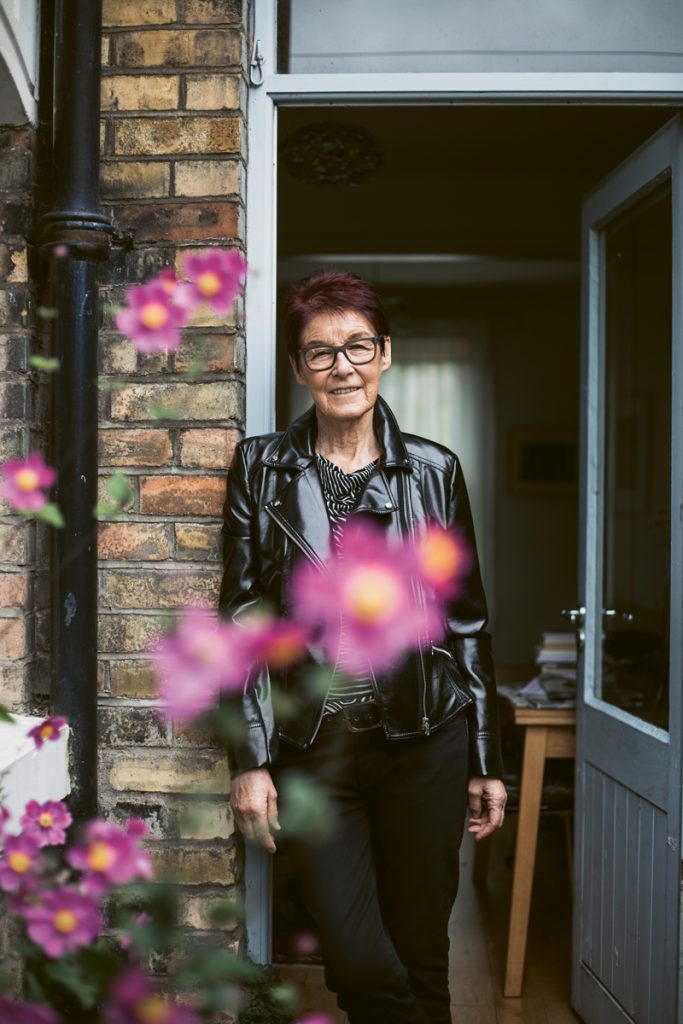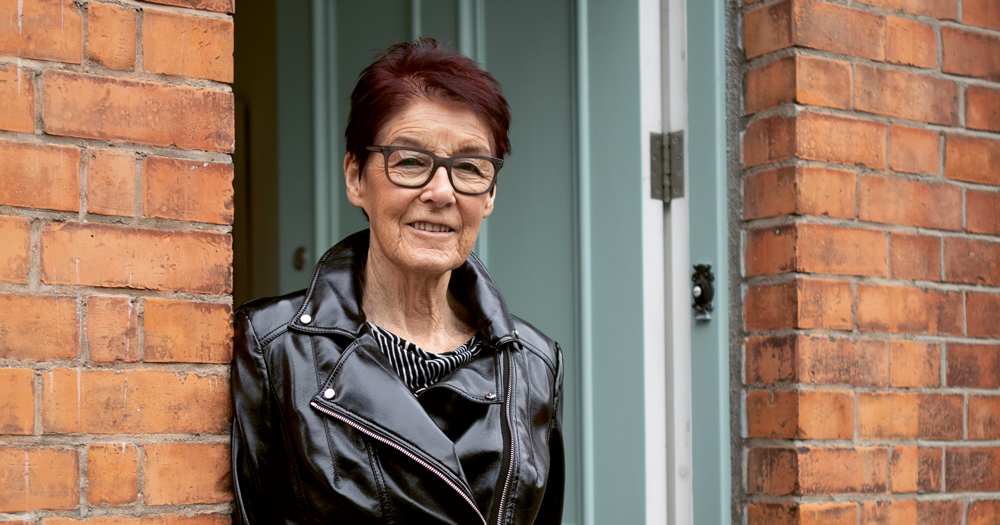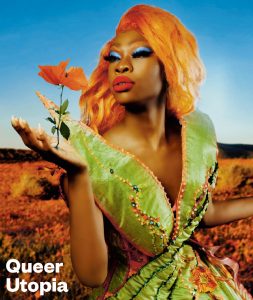The word elderly should be scrapped from everybody’s vocabulary because it conjures up images of people who are physically incapacitated, and probably mentally as well. So, elderly has to go.
Anyone who has ever had the pleasure to chat with Ailbhe Smyth on any topic will likely share my experience of leaving the conversation with and a brain buzzing and brimming with thoughts and further questions. Last week was no exception to that rule when I caught up with Ailbhe by telephone to discuss LGBT+ life in lockdown for older members of the community forced to cocoon. I left the call energised and thanking the universe that we have such intelligent, dynamic and fabulous community leaders like Ailbhe to look to for guidance, wit and wisdom in a time that has pushed every last one of us to the brink, professionally, personally, emotionally and existentially.
Here are some of the fascinating insights Ailbhe shared with me about her experiences of life in lockdown, ageing in general and how that intersects for LGBT+ people particularly.
On ‘Cocooning’
“Cocooning was a very bad, very carelessly chosen word that was designed to make people over 70 feel cherished, wrapped in soft cotton wool and so on. In fact, it didn’t make us feel cherished. It made those of us who are 70 feel infantilised that we were being treated like children.
And underneath that came the realisation that this was not actually protecting you at all. What this was doing was saying, ‘Listen, we can’t work out how to protect those of you who are more likely to die from COVID-19. We don’t know what to do about it, so we’re gonna lock you up and we’re going to throw away the key and there won’t be any help inside. It was very much being locked in and shut down and shut out.”
“Thinking of myself, I am over 70 and very active, so first of all, I thought, ‘Oh, that won’t be a problem’. But then I realised, actually, it is a huge problem because I live on my own. So I am locked in with myself, for however long this thing takes.”
Stages of Ageing
“First of all, we’re all ageing and we’re all growing older – the minute you’re born, you’re older than someone else. Geriatricians and geriatric psychologists, sociologists, and so on are very, very clear that we can see that older age is also getting further away from birth, so to speak. So older age used to be in your 60’s – hence retirement at 65. Whereas now, for people in their 70’s, we have an expectation that we will be generally well and fit and active and varied. Any of us would like to be working, in many cases, that’s not possible because of retirement requirements. But there is that whole cohort of people who are in their 70’s today who don’t think of themselves as old – I think that mental shift is a really important one. Whereas before, somebody in their mid-70’s would say things like, ‘Oh, well, I’m getting on now. It’s time for me to sit back’ and now when somebody says that to me, I think ‘You have to be joking’.
“I am not alone in this by a long shot. People who have been pushed into retirement, and then further pushed into isolation from society through lockdown, are having a very, very hard time because we are being written off as a generation that is no longer simply to be protected from a disease, but that doesn’t really have any other useful function. And that’s very difficult.
Obviously, as you move through your 80’s, if your health begins to become problematic, you are much more prone to have difficulties, and all the more so in your 90’s. But the reality is that the majority of people now live healthy well and fit lives into their 70’s and well into their 80’s and expect to be relatively healthy and well into their 90’s. And that’s such a big change.”

Ageing and the LGBT+ Community
“All of what we say about older people generally is sort of exacerbated or highlighted even more in the community, because we are also that generation of lesbian, gay, bi and trans, and particularly of trans and intersex people, who have grown up in a world that didn’t want us anyway. So it’s also hiding us away now, and putting us behind closed doors.
That echoes and resonates with that exclusion that you had, that I had certainly as a much younger woman when I realised that there were doors that were closed to me, there were doors that were slammed in my face, whether they were family or friendship circles, or work.”
“Despite my privilege, as a middle-class white woman who had a good job, those things still happened, and it still resonates. Now, if a door is slammed in my face, or I hear the key being turned in the lock – which has happened to us over the past several months – there is a very real mental burden for LGBT+ people that really has not been assessed and measured at all.”
Ageism
“Our society, our culture is a very ageist culture. I don’t just mean Ireland, but thinking about Europe, really, it’s very ageist. The lack of care for people in nursing homes, nobody ever thinks really about what happens to LGBT+s in nursing homes. I don’t think it will be wise for us to believe that LBGT+’s have entirely escaped that cultural mindset. It’s a default setting.”
“People don’t like the thought of getting old because we associate it with very bad things – ill-health, incapacity, lack of respect, contempt, we have to stop sending people to nursing homes, we have to look at how we care for older people.”
Loneliness
“A lot of people never say they are lonely, but actually they are. And that has really come to the surface in this pandemic. I think it’s definitely been there for older LGBT+s. There have been three or four books just within the last nine months, mainly academic books, on solitude and loneliness.”
“I always remember somebody saying to me, ‘Oh, you don’t die of loneliness’, but actually you do. Loneliness contributes to ill health, very seriously, both mental and physical. We have a society, a culture, that is aware that people can be lonely and that we need ways of addressing this and quite frankly, the HSE the way in which they addressed it during the pandemic is basically to say, ‘Well, here’s a list of services you can contact’, and that was it. A lot of those services turned out to be busy, over full, over occupied, or not open at all.”
As we bring our conversation to a close, Ailbhe jokingly remarks that I got a lot more than I bargained for in our conversation, and she was right. I hang up the phone in awe and in deep reflection about how each of us must address unexamined bias, blind spots and assumptions so that we can revolutionise how we view, engage with and value older people and ageing.
If COVID-19 can give us anything positive let it be a renewed commitment to support older people in our community and transform our society for the better.
© 2020 GCN (Gay Community News). All rights reserved.
This article was published in the print edition Issue No. 364 (October 1, 2020). Click here to read it now.
Support GCN
GCN is a free, vital resource for Ireland’s LGBTQ+ community since 1988.
GCN is a trading name of National LGBT Federation CLG, a registered charity - Charity Number: 20034580.
GCN relies on the generous support of the community and allies to sustain the crucial work that we do. Producing GCN is costly, and, in an industry which has been hugely impacted by rising costs, we need your support to help sustain and grow this vital resource.
Supporting GCN for as little as €1.99 per month will help us continue our work as Ireland’s free, independent LGBTQ+ media.

